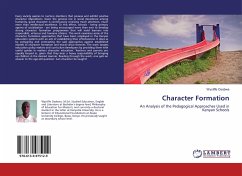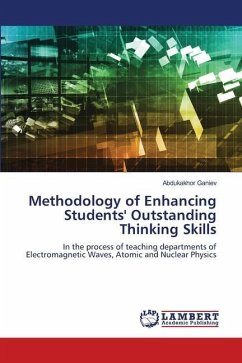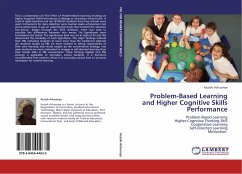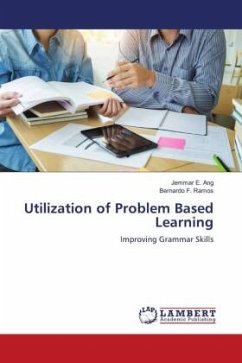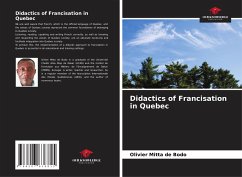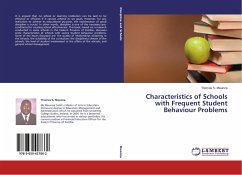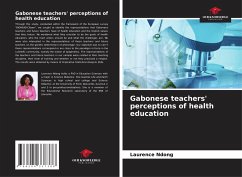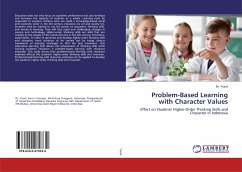
Problem-Based Learning with Character Values
Effect on Students' Higher-Order Thinking Skills and Character in Indonesia
Versandkostenfrei!
Versandfertig in 6-10 Tagen
51,99 €
inkl. MwSt.

PAYBACK Punkte
26 °P sammeln!
Education does not only focus on academic performance but also develops and increases the capacity of students as a whole. Learning must be organized to produce thinkers who can build a knowledge-based social and economic order in the XXI century, industrial era 4.0 and society 5.0. Students must be trained to use the power of argument, thinking skills, and morals in learning. They will face rapid and challenging changes in science and technology. Higher-order thinking skills are skills that are needed by the people of the world who live in the XXI century. Therefore, experiments, in order to ...
Education does not only focus on academic performance but also develops and increases the capacity of students as a whole. Learning must be organized to produce thinkers who can build a knowledge-based social and economic order in the XXI century, industrial era 4.0 and society 5.0. Students must be trained to use the power of argument, thinking skills, and morals in learning. They will face rapid and challenging changes in science and technology. Higher-order thinking skills are skills that are needed by the people of the world who live in the XXI century. Therefore, experiments, in order to generate and develop higher-order thinking skills and character, must continue to be carried out by trying various treatments of learning strategies to find the best treatment. One alternative learning that allows the achievement of thinking skills while training students' character is problem-based learning with character emphasis. This study shows that problem-based learning with characteremphasis affects the students' higher-order thinking skills and character. Problem-based learning with character emphasis can be applied to develop the students' higher-order thinking skills and character.



